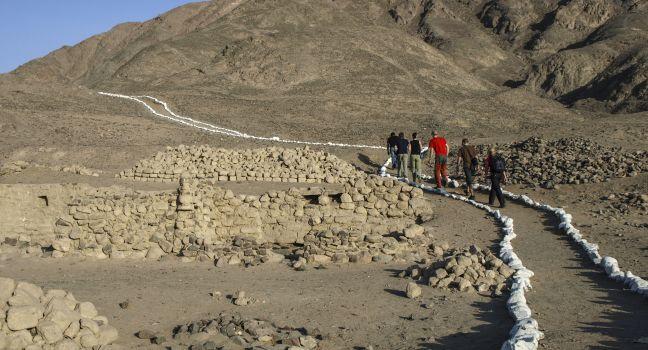Nazca

What do a giant hummingbird, a monkey, and an astronaut have in common? Well, apart from the fact that they're all etched into the floor of the desert near Nazca, no one really seems to know. Welcome to one of the world's great mysteries—the Nazca Lines, hallmark of one of Peru's most enigmatic ancient civilizations.
A mirage of green in the desert, lined with cotton fields and orchards and bordered by crisp mountain peaks, Nazca was a quiet colonial town unnoticed by the rest of the world until 1901, when Peruvian archaeologist Max Uhle excavated sites around it and discovered the remains of a unique pre-Columbian culture. Set 598 meters (1,961 feet) above sea level, the town has a dry climate—scorching by day, nippy by night—that was instrumental in preserving centuries-old relics from Inca and pre-Columbian tribes. The area has more than 100 cemeteries, where the humidity-free climate has helped preserve priceless jewelry, textiles, pottery, and mummies. Overlooking the parched scene is the 2,078-meter (6,815-foot) Cerro Blanco, the highest sand dune in the world.
Recommended Fodor's Video
Elsewhere in Nazca
Ica >
Restaurants (2), Things to do (8), Hotels (5)
Huacachina >
Restaurants (2), Things to do (0), Hotels (3)
Asia >
Restaurants (0), Things to do (0), Hotels (2)
Cerro Azul >
Restaurants (0), Things to do (1), Hotels (0)




